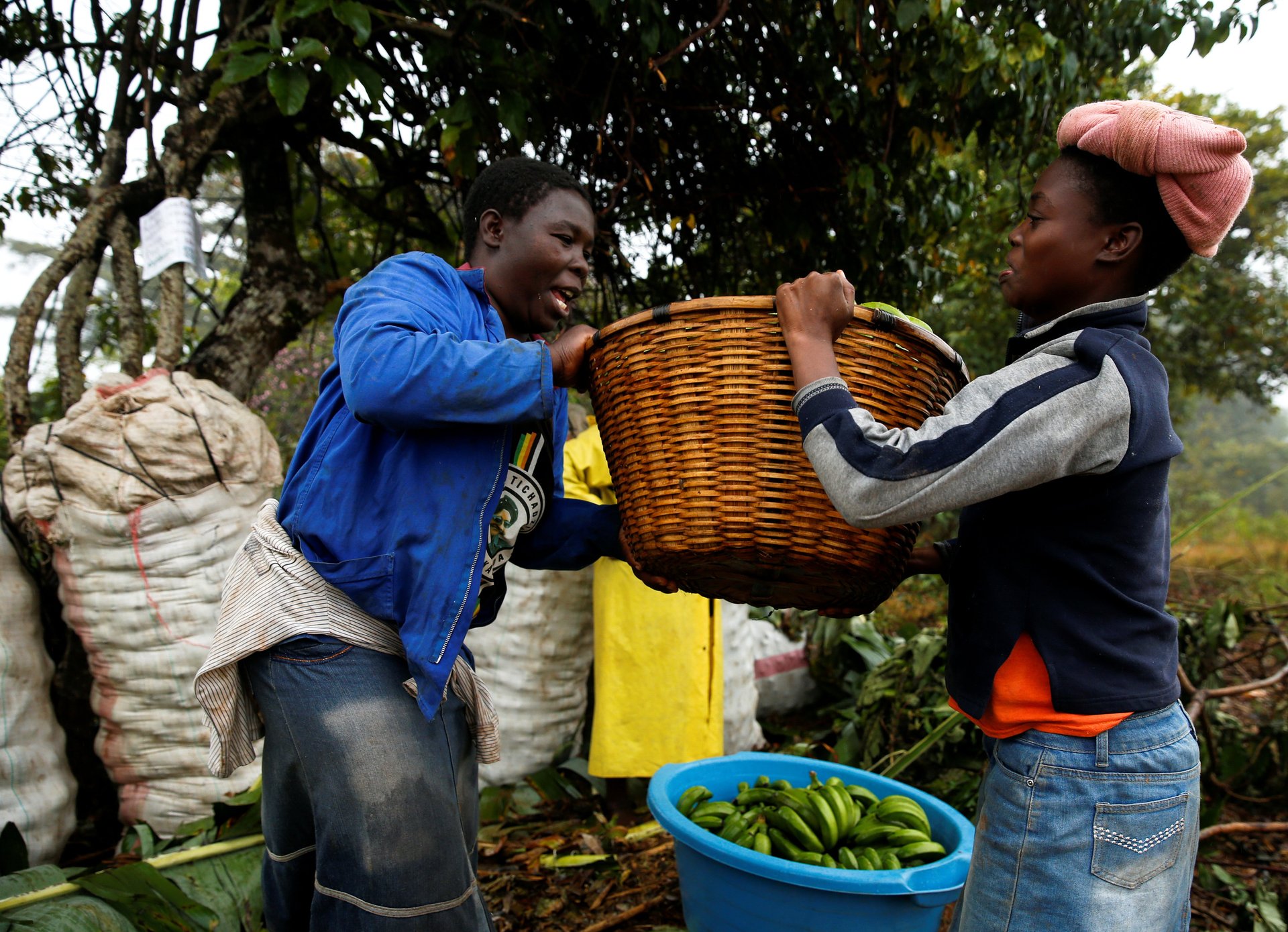African leaders are questioning “microcredit” and other norms excluding women from trade
AfCFTA conference this week seeks to center women and youth as the trade area's "engine."

Despite the fact that women run most small and medium scale businesses in Africa, they have a $42 billion gap in funding versus men. Female owned businesses tend to be underfunded, but over mentored with the ring-fencing of certain small pools of funding to them, ironically sometimes putting them at a disadvantage.
“Why are we pegged to microcredit, small amounts that don’t really make a difference? How does a woman grow and develop her business,” Liberia’s vice president, Jewel Taylor, asked at a conference in Tanzania this week centering women and youth as the necessary “engine” for Africa’s historic free trade agreement to succeed. Merely setting schemes aside for women doesn’t cut it if big money pots available to men are out of reach, she added.
Taylor and some of Africa’s highest ranking leaders are demanding deliberate action that will lead to more women learning science in school and choosing business as a career, not as a desperate alternative later in life. Among those leading the call are former Malawian president Joyce Banda, and Ethiopian president Sahle-Work Zewde.
Since trading officially started in January last year, the Africa Continental Free Trade Area (AfCFTA) has notched some milestones on the march to meaningful commercial activity. There is now a rules of origin manual (pdf) detailing criteria for exempting goods from excise duty, as well as an electronic tariff portal.
A guided trade initiative was started in July as a pilot trade scheme involving Ghana, Kenya, Cameroon, Tanzania, Rwanda, and Egypt. PAPSS, Africa’s central payments switch for settling transactions in local currencies, is operational.
But while they identify some progress over time, Africa’s top female leaders say the continent must eliminate existing “false norms” that will hold back half of its population from fully benefiting from the trade agreement.
Early choices keep women away from leadership
Zewde spoke of social norms that handicap women in business and related fields as a result of which leadership becomes concentrated in men. “These norms are also embedded in educational institutions which discourage women from taking up science and training that enhance capability for business,” she said on one of the conference’s panel sessions today (Sept. 12).
Along the same line, Taylor traced gender gaps in business activity to the disparity between the freedom afforded girls and boys to choose adventures at childhood. “When you train a girl with constraints in her mind and she then gets to a point where she is supposed to fly, how does she fly? We then start talking about mentorship but we never have to mentor men.”
These are not new complaints. In parts of Africa like Nigeria, the greater proportion of out-of-school children are girls. Inheritance laws constrain African women’s access to land, finance and other means of entrepreneurship.
There was some acknowledgement of progress, even as funds emerge to back African female founders.
Uganda’s vice president Jessica Alupo, also on the panel, cited her presence at the conference as a sign that African women are increasingly having agency to climb career ladders and lead in business. Banda, viewed as a pioneering African female politician, waved her current status as a chili-exporting business woman as a pointer to expanding opportunities for female entrepreneurship in Africa.
Still, not enough women are choosing business early in life and the lack of data on participation is hampering efficient policy interventions, the leaders and members of the audience said.
“I would like to propose that our governments should consider introducing education in business management in our curriculums” at primary and secondary schools, Banda said. “We’ve been talking too much, we must now act.”